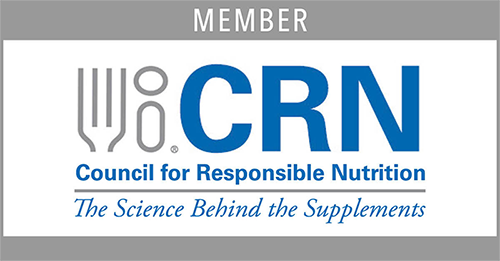What is It?*
Source type: Water-soluble vitamin
Source(s):
- Naturally found in animal foods (organ meats, poultry, salmon, milk, cheese, yogurt, eggs)
- Naturally found in plant foods (leafy green vegetables, almonds, whole grains)
- Fortified foods (breads, cereals, flour)
- Chemically synthesized in labs
Riboflavin, also called vitamin B2, is a water-soluble vitamin and part of the B-complex family. Like other B vitamins, riboflavin plays a role in energy metabolism. It converts carbohydrates, fats, and proteins into energy. It is also necessary for maintaining healthy skin, eyes, and nerve functions. In addition, it is important for growth and red blood cell production.
Benefits*
Riboflavin helps to produce energy for the cells in our body. It also works as an antioxidant, fighting damage caused by free radicals. Riboflavin is important for normal vision and might help prevent cataracts. It may also help reduce migraine headaches.
Effectiveness*
Riboflavin is effective in its role as a coenzyme in various metabolic processes, particularly in energy production and the protection of cells from oxidative stress.
The research on riboflavin and migraine prevention is mixed. Several studies have found that people who get migraines may reduce the duration and frequency of migraines by taking riboflavin. However, some studies did not yield the same results. Since riboflavin supplements have very few side effects, many experts do recommend trying it under the guidance of a health care provider.
Studies have found that supplementing with a combination of riboflavin and niacin might help prevent cataracts and damage to the lens of the eye. More research is still needed.
Risks*
There is currently no upper limit set for riboflavin, as there is a lack of evidence of toxicity at high exposures. But, very high doses may still cause adverse effects, including itching, numbness, burning or prickling sensations, yellow or orange urine, and sensitivity to light. Riboflavin may interact with a number of medications, including anticholinergics, Tetracycline, tricyclic antidepressants, antipsychotics, diuretics, Phenytoin, Methotrexate, and Doxorubicin. Taking these medications with riboflavin supplements can affect how the body absorbs and uses both the riboflavin and the medication.



